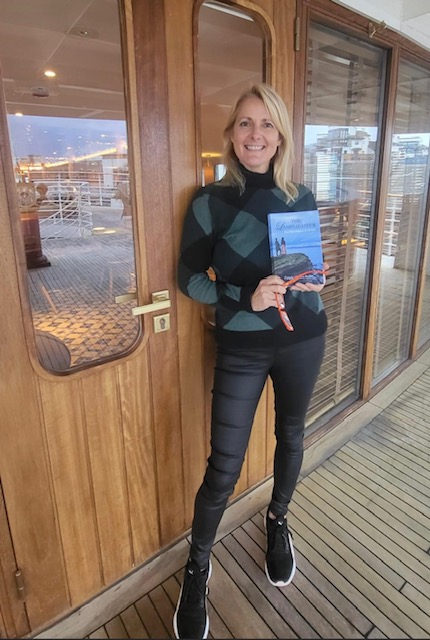
Check out the full interview with Pamela below...
I started writing and acting out stories from the age of six. Fast forward to my early twenties when I realised I wasn’t going to grow out my love for performing after all, so I enrolled myself in acting school. Creators are always evolving, so thirty years of acting in front of the camera morphed into writing scenes. It was a natural progression.
Most recently, I wrote the screenplay The Lamplighter (2021). I always knew I would write about a lighthouse and this was it. Although it is a fictional period drama, there are many true events which take place. The story tells of poverty in 1870s Victorian Scotland, the building of a very real Dubh Artach lighthouse and the challenges of a young engineer-come-budding young writer by the name of Robert Louis Stevenson. I had a big responsibility to get those three topics accurate. My biggest challenge and the fire underneath my feet was the hours and months spent researching facts. I was fortunate to have the Northern Lighthouse Board and Scottish Poetry Library at my side offering lots of invaluable details.
For me, great screenplay – irrelevant of genre, tone, etc – must a) keep the energy flowing throughout; and b) be interesting enough to keep my attention. There seems to be a flood of writers at the moment, which could be a side effect of covid lockdown. We couldn’t go outside, so we went inside and took a good look deep within.
Many people finally found the time to put pen to paper, which is a wonderful thing. I think the industry needs to release their gatekeepers and have a look at what these people have to say. In the industry’s desperate search for new stories, this is where they might find them!
My approach to writing different genres is a simple one. If I think of a story I write it, no matter the genre. I often have several stories in my head at once, so organising those thoughts well is important. I must maintain a balance of time alone to explore thoughts as well as good social interaction.
I’m an actor, so rejection and criticism is something I’m used to. I’m all ears to opinion and experienced enough to know everyone has a different one and my life isn’t validated just because one person likes or doesn’t like me or my work. Although, I admit it feels mighty good to win an award!
In October 2022 The Lamplighter was released as a novel. It was important to me to tell everything I could about the story of Alfred Henderson, a Greenock ship merchant, who, as a child was traumatised when he watched in secret, his father mistreating slaves. I also wanted to explore how lighthouses were built in the sea using only wood, stone and glass materials and how the craftsmen fought against tide and storm to build them for the safety of others. I was – and still am – absolutely fascinated with the ability, ingenuity and tenacity of the Victorians.
At the time of the release of the novel, I got a team of people to make a concept film for the story. It’s on YouTube under the heading, “The Lamplighter: Hope Shines Brightest in the Dark”. It’s a 2 minute beautifully filmed trailer directed by Hywel Griffith, a two time BAFTA winner and personal friend. Both the film and the novel should convince enough people that the screenplay needs to be made into a full motion picture. It has sustainability and the capacity for real success.
When other writers ask me for advice, I will always say enjoy the process; work at it and believe. Be open and listen to advice and take what you can from it and don’t be easily discouraged.
Thank you for this inspiring interview and for taking the time to honestly answer all the questions. The BIA team wishes you great success with your next projects!